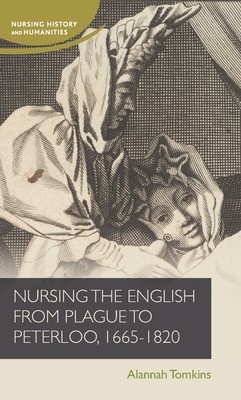
- We will send in 10–14 business days.
- Author: Alannah Tomkins
- Publisher: Manchester University Press
- ISBN-10: 1526178524
- ISBN-13: 9781526178527
- Format: 14 x 21.6 x 2.1 cm, hardcover
- Language: English
- SAVE -10% with code: EXTRA
Nursing the English from Plague to Peterloo, 1665-1820 (e-book) (used book) | bookbook.eu
Reviews
Description
This book studies the negative stereotypes around the women who worked as sick nurses in this period and contrasts them with the lived experience of both domestic and institutional nursing staff. Furthermore, it integrates nursing by men into the broader history of care as a constant if little-recognised presence. It finds that women and men undertook caring work to the best of their ability, and often performed well, despite multiple threats to nurse reputations on the grounds of gender norms and social status. Chapters consider nursing in the home, in general hospitals, in specialist institutions like the Royal Chelsea Hospital and asylums, plus during wartime, illuminated by multiple accounts of individual nurses. In these settings, it employs the sociological concept of 'dirty work' to contextualise the challenges to nurses and nursing identities.
EXTRA 10 % discount with code: EXTRA
The promotion ends in 15d.02:47:23
The discount code is valid when purchasing from 10 €. Discounts do not stack.
- Author: Alannah Tomkins
- Publisher: Manchester University Press
- ISBN-10: 1526178524
- ISBN-13: 9781526178527
- Format: 14 x 21.6 x 2.1 cm, hardcover
- Language: English English
This book studies the negative stereotypes around the women who worked as sick nurses in this period and contrasts them with the lived experience of both domestic and institutional nursing staff. Furthermore, it integrates nursing by men into the broader history of care as a constant if little-recognised presence. It finds that women and men undertook caring work to the best of their ability, and often performed well, despite multiple threats to nurse reputations on the grounds of gender norms and social status. Chapters consider nursing in the home, in general hospitals, in specialist institutions like the Royal Chelsea Hospital and asylums, plus during wartime, illuminated by multiple accounts of individual nurses. In these settings, it employs the sociological concept of 'dirty work' to contextualise the challenges to nurses and nursing identities.


Reviews